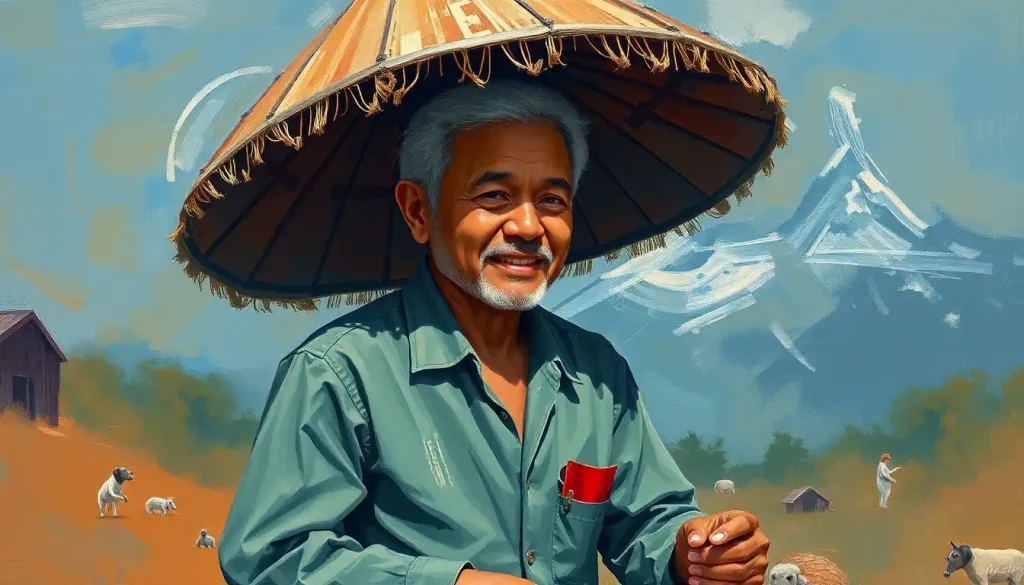As billions of dollars flow from Beijing to African capitals at an unprecedented rate, a new economic battleground emerges that could reshape the future of global power dynamics and development across an entire continent. This influx of Chinese investment in Africa has sparked intense debate and scrutiny, raising questions about motives, impact, and long-term consequences for both parties involved.
The roots of China-Africa relations stretch back centuries, but it’s only in recent decades that this partnership has truly blossomed. From humble beginnings of diplomatic ties in the 1950s, China’s engagement with Africa has grown exponentially. Today, the scale and scope of Chinese investments in Africa are staggering, spanning sectors from infrastructure and energy to agriculture and technology.
Why has Africa become such a crucial piece in China’s global strategy? The answer lies in a complex web of economic, political, and strategic interests that have aligned to create a mutually beneficial relationship – at least on the surface. As we delve deeper into this fascinating topic, we’ll uncover the layers of motivation, impact, and future implications of China’s growing presence in Africa.
The Economic Chess Game: China’s African Gambit
At the heart of China’s investment strategy in Africa lies a shrewd economic calculus. The continent’s vast natural resources and raw materials are like catnip to China’s resource-hungry economy. From oil in Nigeria to copper in Zambia, Africa’s mineral wealth provides the fuel for China’s industrial machine.
But it’s not just about extracting resources. Africa represents a golden opportunity for Chinese companies to expand their markets and flex their economic muscles. With a rapidly growing population and emerging middle class, African countries offer a tantalizing prospect for Chinese goods and services. From smartphones to solar panels, Chinese products are flooding African markets, often at prices that local competitors struggle to match.
Perhaps the most visible aspect of China’s economic engagement in Africa is its role in infrastructure development. Chinese companies have become the go-to partners for building roads, railways, ports, and power plants across the continent. These projects not only provide immediate economic benefits but also lay the groundwork for future trade and investment.
Take, for example, the Standard Gauge Railway in Kenya. This massive infrastructure project, financed and built by China, has significantly reduced travel time between Nairobi and Mombasa, boosting trade and economic activity along its route. It’s just one piece of a much larger puzzle – Investing in Kenya: Opportunities, Challenges, and Key Sectors for Growth has become increasingly attractive to both Chinese and global investors, thanks in part to such transformative projects.
But Africa isn’t just another market or source of raw materials for China. It’s a key component of the ambitious Belt and Road Initiative (BRI), China’s grand strategy to create a modern-day Silk Road connecting Asia, Europe, and Africa. Through the BRI, China aims to reshape global trade routes and cement its position as a leading economic power.
Beyond Economics: The Geopolitical Chessboard
While economic motivations are crucial, they’re only part of the story. China’s investment in Africa is also driven by geopolitical and diplomatic considerations that extend far beyond the balance sheet.
By cultivating strong ties with African nations, China is strengthening its global influence and challenging the traditional dominance of Western powers in the region. This shift in the geopolitical landscape is particularly evident in international forums, where African countries often align with China on key issues.
Take the United Nations, for instance. African votes have been crucial in supporting China’s positions on contentious topics like human rights and territorial disputes. This diplomatic support is invaluable to China as it seeks to shape global norms and institutions in its favor.
Moreover, China’s engagement with Africa serves as a counterweight to Western influence on the continent. By offering an alternative development model and source of investment, China presents itself as a partner that doesn’t come with the same strings attached as Western aid often does.
One of the most significant diplomatic objectives for China in Africa is promoting its “One China” policy. This principle, which asserts that Taiwan is an integral part of China, is a non-negotiable condition for Chinese diplomatic and economic engagement. African countries that recognize Taiwan find themselves excluded from China’s largesse, while those that adhere to the One China policy reap the benefits of Chinese investment and support.
The Impact: A Double-Edged Sword
The influx of Chinese investment has undeniably transformed African economies in profound ways. From gleaming skyscrapers in Addis Ababa to bustling ports in Djibouti, the physical manifestations of China’s presence are impossible to ignore.
Infrastructure development has been a particular focus of Chinese investment, addressing a critical need in many African countries. New roads, railways, and ports have improved connectivity, reduced transportation costs, and opened up previously isolated regions to trade and development. The impact on economic growth and modernization has been significant, with many African countries experiencing robust GDP growth in recent years.
Job creation is another often-cited benefit of Chinese investment. Chinese-funded projects have employed millions of African workers, providing much-needed employment opportunities. Moreover, these projects often involve skills transfer, with Chinese experts training local workers in various technical and managerial roles.
However, the picture isn’t entirely rosy. Critics argue that Chinese investments often come with hidden costs and potential long-term consequences. Concerns about debt sustainability have been raised, particularly in cases where countries have taken on large Chinese loans to finance infrastructure projects. The specter of “debt-trap diplomacy” looms large, with fears that China could leverage its economic clout for political gain.
Environmental and labor practices have also come under scrutiny. Some Chinese-funded projects have been criticized for their ecological impact and for not adhering to local labor laws. These controversies have sometimes led to local backlash and strained relations between Chinese investors and host communities.
Despite these challenges, many African countries continue to view Chinese investment as a net positive. For nations like Investing in Nigeria: Opportunities, Challenges, and Strategies for Success has been significantly bolstered by Chinese engagement, particularly in sectors like oil and infrastructure.
East Meets West: Contrasting Approaches to African Investment
The surge of Chinese investment in Africa has thrown into sharp relief the differences between Chinese and Western approaches to engagement with the continent. These contrasts extend across various dimensions, from investment strategies and priorities to loan terms and conditions.
Chinese investment tends to focus heavily on infrastructure and resource extraction, often with a preference for large-scale, high-visibility projects. Western investment, on the other hand, has traditionally been more diverse, encompassing sectors like finance, technology, and consumer goods.
When it comes to loan terms, China has gained a reputation for offering more flexible conditions compared to Western institutions. Chinese loans often come with longer repayment periods and lower interest rates. However, they may also require collateral in the form of natural resources or strategic assets, a practice that has raised concerns about long-term sovereignty.
Perhaps the most significant difference lies in the emphasis on governance and human rights. Western aid and investment often come with conditions related to democratic reforms, transparency, and human rights improvements. China, in contrast, adheres to a policy of non-interference in the internal affairs of African countries, a stance that many African leaders find appealing.
These differing approaches have led to varied perceptions among African populations. Some view Chinese investment as a welcome alternative to Western aid, free from colonial baggage and paternalistic attitudes. Others worry about the long-term implications of China’s growing influence and the potential for a new form of economic colonialism.
For investors considering opportunities in Africa, understanding these dynamics is crucial. Whether you’re Investing in South Africa: Opportunities, Challenges, and Strategies for Success or exploring options in other African nations, it’s essential to navigate the complex interplay of Chinese, Western, and local interests.
Looking Ahead: The Future of China-Africa Economic Relations
As we peer into the future of China-Africa economic relations, one thing is certain: change is on the horizon. The nature of Chinese investments in Africa is evolving, driven by shifts in both Chinese and African priorities.
On the Chinese side, there’s a growing emphasis on sustainability and quality over quantity. This shift is partly in response to criticism of past practices and partly a reflection of China’s own changing economic needs. We’re likely to see more investments in sectors like technology, renewable energy, and services, moving beyond the traditional focus on extractive industries and infrastructure.
For African countries, the challenge will be to maximize the benefits of Chinese investment while mitigating potential risks. This balancing act will require savvy negotiation, strong governance, and a clear vision for national development priorities.
One trend to watch is the increasing assertiveness of African nations in their dealings with China. Countries like Investing in Ghana: Opportunities, Challenges, and Strategies for Success are becoming more selective about the projects they approve and the terms they accept. This shift towards a more balanced partnership could lead to more sustainable and mutually beneficial outcomes.
Global economic shifts will undoubtedly impact China-Africa relations. As China’s economy matures and its growth rate slows, its appetite for African resources may change. At the same time, the rise of other emerging economies could provide African nations with alternative sources of investment and partnership.
For investors eyeing opportunities in this dynamic landscape, staying informed about these evolving trends is crucial. Whether you’re considering Investing in China: Strategies, Risks, and Opportunities in the World’s Second-Largest Economy or exploring direct investments in African markets, understanding the broader context of China-Africa relations is essential.
Conclusion: A Relationship in Flux
As we’ve explored, China’s investment in Africa is driven by a complex interplay of economic, geopolitical, and strategic factors. From securing vital resources to expanding its global influence, China’s engagement with Africa serves multiple objectives that align with its long-term vision of becoming a leading global power.
For African nations, Chinese investment presents both opportunities and challenges. The influx of capital and expertise has undoubtedly contributed to economic growth and development across the continent. New infrastructure, job creation, and technology transfer have tangible benefits for many African countries.
However, the relationship is not without its complexities. Concerns about debt sustainability, environmental impact, and labor practices highlight the need for careful management of Chinese investments. African leaders face the delicate task of leveraging Chinese engagement for national development while safeguarding their countries’ long-term interests.
Looking ahead, the future of China-Africa economic relations will likely be characterized by greater complexity and nuance. As both parties become more sophisticated in their engagement, we can expect to see more balanced partnerships and tailored approaches to investment and cooperation.
For global investors, the evolving dynamics of China-Africa relations present both opportunities and risks. Whether you’re interested in Investing in Africa: Opportunities, Challenges, and Strategies for Success or exploring opportunities in Chinese markets, understanding this crucial relationship is key to making informed investment decisions.
As billions continue to flow from Beijing to African capitals, one thing is clear: the economic ties between China and Africa will play a pivotal role in shaping the future of global trade, development, and geopolitics. It’s a relationship that demands our attention, understanding, and critical analysis as we navigate the complex waters of the 21st-century global economy.
References:
1. Brautigam, D. (2020). A critical look at Chinese ‘debt-trap diplomacy’: The rise of a meme. Area Development and Policy, 5(1), 1-14.
2. Gu, J., & Kitano, N. (2018). Emerging economies and the changing dynamics of development cooperation. IDS Bulletin, 49(3).
3. Sun, I. Y., Jayaram, K., & Kassiri, O. (2017). Dance of the lions and dragons: How are Africa and China engaging, and how will the partnership evolve? McKinsey & Company.
4. Wang, Y., & Wissenbach, U. (2019). China’s growing presence in Africa: Towards a new paradigm of development cooperation. African Studies Quarterly, 19(3-4), 1-12.
5. Zeleza, P. T. (2014). The Africa-China relationship: Challenges and opportunities. Canadian Journal of African Studies, 48(1), 145-169.
6. Dollar, D. (2016). China’s engagement with Africa: From natural resources to human resources. Brookings Institution.
7. Alden, C., & Alves, A. C. (2009). China and Africa’s natural resources: The challenges and implications for development and governance. South African Institute of International Affairs.
8. Chen, W., Dollar, D., & Tang, H. (2018). Why is China investing in Africa? Evidence from the firm level. The World Bank Economic Review, 32(3), 610-632.
9. Sautman, B., & Yan, H. (2015). Localizing Chinese enterprises in Africa: From myths to policies. Hong Kong University of Science and Technology Institute for Emerging Market Studies.
10. Mohan, G., & Tan-Mullins, M. (2019). The geopolitics of South-South infrastructure development: Chinese-financed energy projects in the global South. Urban Studies, 56(7), 1368-1385.












Would you like to add any comments? (optional)